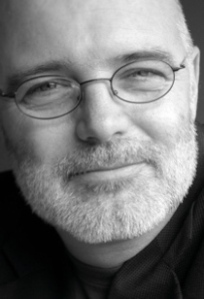50 leaders of the evangelical generation. #24 Brian McLaren. Nonconformist on the edge
[I am working on a project that may become a book on the most influential evangelicals leaders of our generation, since 1976, and the impact they’ve had on the church and their times. I will introduce them briefly on this blog from time to time. Who should be on this list?]
# 24. Brian McLaren, Nonconformist on the Edge b. 1956
Last year, one of the pastors at our conservative church handed me a list of must-read books, including more than one by Brian McLaren. Later, one of my Baptist acquaintances explained to me that McLaren was apostate because he thought you could be a Buddhist Christian or a Muslim Christian. That pretty well describes the range of opinion of McLaren among even the most orthodox, faithful evangelicals. McLaren was one of the early leaders of the emergent movement and its best known figure; his written and spoken words have come under scrutiny and criticism from figures both inside and out of the movement.
McLaren has great appeal among young people seeking spiritual answers but hesitant to jump into a traditional evangelical church, or buy into its political inclinations or its positions on social issues. His fearlessness to think out loud and his willingness to unhinge his theological wonderings from historic orthodoxy or modern accountability has made him not only controversial, but quite possibility so far outside of the evangelical mainstream that he may soon be considered something other than an evangelical believer. As one observer opined: “Brian McLaren has been on a heretical trajectory for quite some time.”
McLaren’s written and spoken words have come under scrutiny and subsequent criticism from figures both inside and out of the emerging church movement. Generally these criticisms claim that McLaren’s theology provides no basis for doctrine and that without any basis, doctrine is abandoned in favor of “generosity” and “conversation.” Conservatives in the emergent movement have joined mainstream evangelicals in protesting that McLaren’s philosophical posture has led him to entertain and even embrace un-orthodox or perhaps even apostate doctrinal positions. One leader of the emerging church movement, Mark Driscoll, has complained about McLaren’s calling God a “chick,” his advocacy of open theism, his downplaying of substitutionary atonement, and his denial of hell. Reviewing McLaren book A New Kind of Christianity in 2010, Scot McKnight, a professor at North Park University and a former supporter of Emergent Village wrote:
“I want to turn the following comment from McLaren back on him: “Sociologists sometimes say that groups can exist without a god, but no group can exist without a devil.” Brian’s devil is Western evangelicalism, which he caricatures often, and his poking is relentless enough to make me say that he needs to write a book that simply states in positive terms what he thinks without using evangelicalism as his foil.”
Most prominent evangelical leaders have criticized McLaren writings and positions. D.A. Carson, professor at Trinity Evangelical Divinity School, said of McLaren’s doctrinal views: “As kindly but as forcefully as I can, that to my mind, if words mean anything, McLaren has largely abandoned the gospel.”[1]
Some are harsher. One fundamentalist wrote: “McLaren rejects absolute truth, authority, theology, objectivity, certainty and clarity. He embraces relativism, inclusivism, deconstructionism, stories (to replace truth), creative interpretation of Scripture, neo-orthodoxy, and tolerance.”[2]
McLaren points to three differences in his approach to Christianity.”The first,” McLaren says, “is an understanding of the Gospel that centers on Jesus’ teaching of the Kingdom of God. I think just about everyone agrees the message Jesus proclaimed is the message that the Kingdom of God is at hand. I grew up in the church, and I never heard about that. When I heard about the Kingdom of God it was always interpreted as going to heaven after you die.”
Second: “An eschatology of engagement rather than abandonment. The idea that the world is going down the toilet and that we should just abandon and prepare for evacuation, I think, creates horrible possibilities of injustice. And so, we’re trying to have an eschatology that thrusts us into the world as agents of justice and peace and reconciliation and service, rather than one that makes us stand on the edge with condemnation and judgment, because we’re always planning to depart.”
Third: “We’re interested in integrating things that previously have been seen as polarities. So that involves, for example, finding the strengths of mainline Protestants and strengths of evangelicals and saying we’re better off with the strengths of both than strengths and weaknesses of only one.” [3]
But two other views have got him in the most hot water in evangelical circles.
He approaches faith from what he considers a more Jewish perspective, which allows faith to exist without objective, propositional truth to believe. “”I believe people are saved not by objective truth, but by Jesus. Their faith isn’t in their knowledge, but in God,” McLaren said.
And, he wrote famously that new Christian converts should remain within their specific contexts:
“I don’t believe making disciples must equal making adherents to the Christian religion. It may be advisable in many (not all!) circumstances to help people become followers of Jesus and remain within their Buddhist, Hindu or Jewish contexts … rather than resolving the paradox via pronouncements on the eternal destiny of people more convinced by or loyal to other religions than ours, we simply move on.”[4]
McLaren is married and has four children. He started and pastored Cedar Ridge Community Church in Maryland until 2006. He has traveled extensively in Europe, Latin America, and Africa, and his personal interests include ecology, fishing, hiking, kayaking, camping, songwriting, music, art, and literature.
[1] (D.A. Carson, Becoming Conversant with the Emerging Church, (2005), p.186)
[2] http://www.wayoflife.org/files/8366a78fea5d3961b7ccb0d184c66109-143.html
[3] http://www.thepomoblog.com/papers/10Q7.htm Terry L. Heaton
[4] More Ready Than You Realize, Brian McLaren

